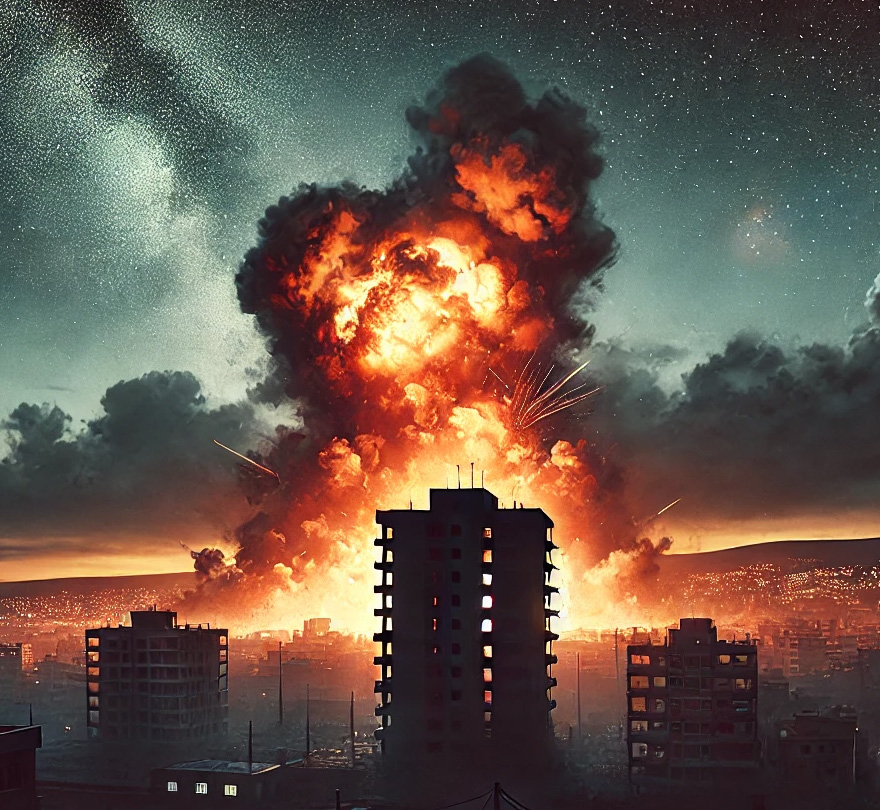
On October 24, 2024, an Israeli airstrike struck a journalist compound in southeast Lebanon, resulting in the deaths of three TV staffers. This tragic event underscores the extreme risks faced by journalists in conflict zones and highlights the erosion of protections meant to safeguard non-combatants and the free press. From a secular humanist perspective, the indiscriminate targeting of civilians, including members of the press, represents a gross violation of human rights and the ethical principles that should govern international conflict.
The Role of Journalism in Conflict
Journalists play a critical role in documenting conflicts, uncovering the human cost of war, and holding all parties accountable for their actions. In the absence of media presence, atrocities can go unnoticed, and the public remains unaware of the true toll these wars exact on civilian populations. This airstrike, which targeted a compound housing journalists, serves as a stark reminder of the growing impunity with which journalists are treated in violent conflicts.
While Israel has not yet publicly acknowledged the specifics of this incident, if it is confirmed that the strike intentionally or recklessly targeted journalists, it represents a clear violation of international law, including the Geneva Conventions. These laws are designed to protect journalists, recognizing their importance in maintaining transparency and accountability during wartime.
The Humanist Stand on Journalistic Freedom
From a secular humanist viewpoint, the protection of free speech and freedom of the press is foundational to a just and ethical society. Journalism, when conducted without fear of repression or violence, empowers individuals by exposing wrongdoing and providing a platform for marginalized voices. Targeting media professionals undermines this crucial function, restricting access to information and shielding powerful actors from scrutiny.
Journalists, much like medical professionals in wartime, are supposed to be protected by international agreements because their work transcends political, military, and ideological divisions. Their mission is to report facts, no matter how inconvenient, and to expose truths that might otherwise remain hidden. This is especially true in regions like the Middle East, where decades of conflict have often left civilians with little recourse but to rely on the media to tell their stories.
As secular humanists, we reject the idea that human lives should be disposable based on nationality, profession, or political alignment. Journalists are civilians, and their work is indispensable in holding power to account, regardless of where that power resides. Whether the perpetrators of violence are state actors, militant groups, or rebel forces, indiscriminate attacks that result in civilian casualties must be condemned.
Context and Consequences
This latest airstrike comes amid escalating tensions along the Israel-Lebanon border, part of the broader regional conflict that has intensified following ongoing military operations in Gaza. Lebanese militants have launched rockets into northern Israel, while Israel has conducted numerous airstrikes against Hezbollah positions and other targets within Lebanon. As civilian casualties mount on both sides, so too does the sense of impunity with which these actions are carried out.
For the families of the TV staffers killed in the compound, this airstrike is not an isolated tragedy but part of a larger pattern of violence that has plagued the region for decades. Civilians in both Israel and Lebanon live under the constant threat of violence, with their lives dictated by geopolitical forces beyond their control. Journalists who report on these conditions do so knowing full well the risks, yet they persist because the world must understand the realities on the ground.
In an environment where disinformation and propaganda are rampant, the role of independent, on-the-ground reporting cannot be overstated. Without journalists willing to risk their lives to cover these conflicts, the rest of the world would remain in the dark about the true scope of human suffering, and those responsible for war crimes would go unchallenged.
What Can Be Done?
This event demands more than just condemnation; it demands accountability. The international community, particularly organizations like the United Nations and the International Criminal Court, must investigate whether this attack constitutes a war crime. If it is found that the airstrike deliberately targeted journalists, those responsible must be held accountable, regardless of their position or nationality.
Governments, including Israel, have a moral and legal obligation to safeguard civilians during military operations. If journalists are seen as collateral damage, it weakens the democratic values that the press upholds, turning wartime journalism into a dangerous, even lethal, pursuit.
Moreover, this incident should prompt renewed discussions about the need for better protections for journalists in conflict zones. While international laws already exist to safeguard them, the growing trend of impunity shows that these protections are inadequate. Global efforts should focus on strengthening enforcement mechanisms to ensure that those who target journalists face real consequences.
A Call to Uphold Human Rights
The deaths of three journalists in a Lebanese compound are not just another tragic statistic in the ongoing conflict between Israel and its neighbors. They symbolize the dangerous erosion of journalistic freedom and civilian protection in war zones. From a secular humanist perspective, human rights, transparency, and the sanctity of civilian life must always be upheld, regardless of the political and military context. A world in which journalists cannot operate freely is a world where the powerful are left unchecked and the voices of the oppressed are silenced. As we reflect on this tragedy, let it serve as a reminder that the fight for human rights and accountability is far from over. Protecting journalists is not just about safeguarding a profession; it’s about preserving the very principles of justice, truth, and human dignity that underpin our global society.


